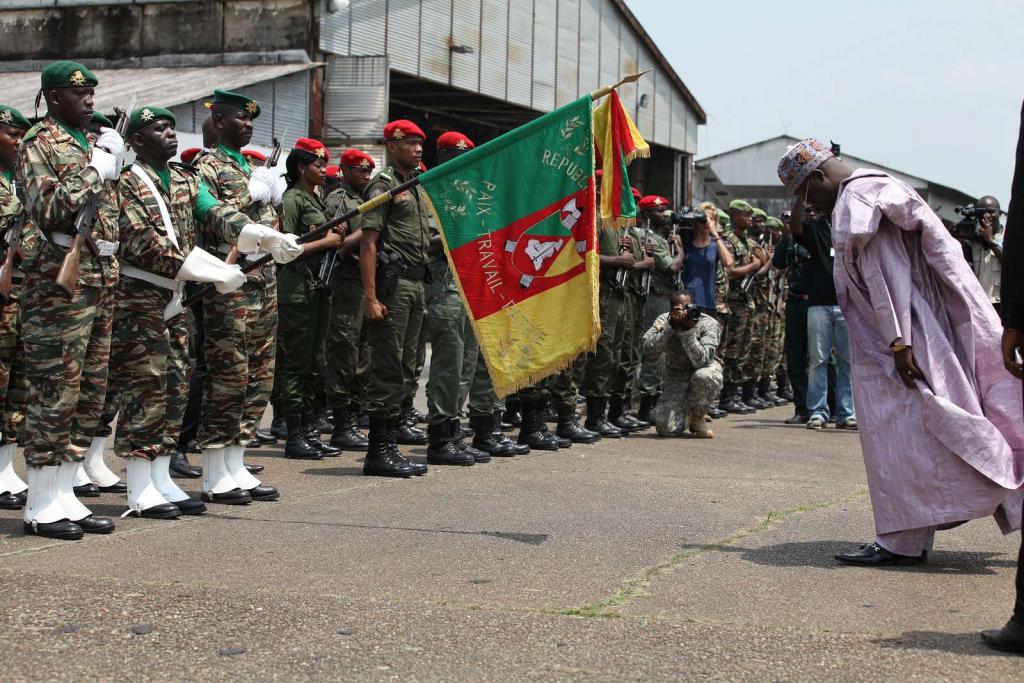Secondary menu
Working Group: Cameroon Anglophone Crisis Database of Atrocities
Documenting war crimes during an on-going civil war

In December 2019, the University of Toronto launched the Cameroon Anglophone Crisis Database of Atrocities (“the Database”). At the beginning of this academic year, the International Human Rights Program (IHRP) partnered with the Database, forming a working group in support of its activities. The Database and working group are led by Billie Burton, a graduate student at the Fletcher School of Law and Diplomacy and geographic information system (GIS) analyst; and Brian Silverman, a Professor of Strategic Management and the J.R.S. Prichard and Ann Wilson Chair in Management at the Rotman School of Management. The leads generously provided the following information about this new initiative.
Members: Jasmine Anthony (1L), Julia Cappellacci (1L), Michaela Dennis (1L), Kimberly Dias (2L), Mariah Watling-Eagle (1L), Lauren George (1L), Laura Hunter (1L), Eric Li (1L), Julianne Schmidt (1L), and Nicolas Williams (1L).
What is the objective of the working group?
The working group is conducting investigations to assist the Database. The Database collects and stores video evidence of war crimes in Cameroon’s Anglophone Crisis and works to verify the evidence. The Database aims to:
Counter the culture of impunity that has pervaded the Anglophone Crisis since it began in 2016;
Procure evidence for future international accountability procedures and a possible national truth, justice, and reconciliation commission;
Assist human rights activists and journalists advocating for human rights in Cameroon;
Establish an archive for scholarly research on Cameroon and the Anglophone Crisis; and
Serve as a deterrent to warring parties from engaging in further atrocities.
The working group has currently assembled two teams to verify two large-scale burnings of villages allegedly conducted by the Cameroon government’s military. Our investigations of these events will form published reports that document the events.
What kind of work are members of the working group engaged in?
Members of the working group use open-source intelligence (OSINT) methods to verify photo and video evidence. This entails geolocation and chronolocation, often using satellite imagery, social media, and other online search methodologies.
Are other rights-advocacy organizations involved with this work?
The Database has a longstanding partnership with the Centre for Human Rights and Democracy in Africa (CHRDA), a prominent human rights organization based in the conflict zone in Cameroon. Among its other activities, the CHRDA collects eyewitness testimony of atrocities. The combination of eyewitness testimony and OSINT-based visual verification makes for powerful documentation of events.
The Database has worked on occasion with other organizations such as Bellingcat on specific projects and has good relationships with Human Rights Watch and Amnesty International. In addition to the Faculty of Law, the Database works with research teams at the University of Exeter and the Edinburgh International Justice Initiative to verify incidents using OSINT methods.
How did the partnership between the Database and the Faculty of Law come about?
The partnership began shortly before the Fall 2021 academic term. The Database is hosted at the University of Toronto and one of its leaders, Professor Brian Silverman, is a faculty member at the Rotman School of Management. Thus, the Database leaders were already familiar with the IHRP and proposed a partnership.
What makes the work of the Database increasingly important?
After five years, the Anglophone Crisis continues to rage on and intensify. Atrocities are ongoing and the warring parties’ weapons are becoming more sophisticated. The Database’s work is significant in the effort to monitor and report the atrocities that consistently are under-reported in the conflict. Increasingly, the Database is conducting analysis and considering how our work can support early warning mechanisms for atrocities. With growing international attention in 2022, the Database’s work will be especially important in providing verified information that can incite and galvanize the international community into action.
Learn more about the Cameroon Anglophone Crisis Database of Atrocities at https://research.rotman.utoronto.ca/Cameroon/.
